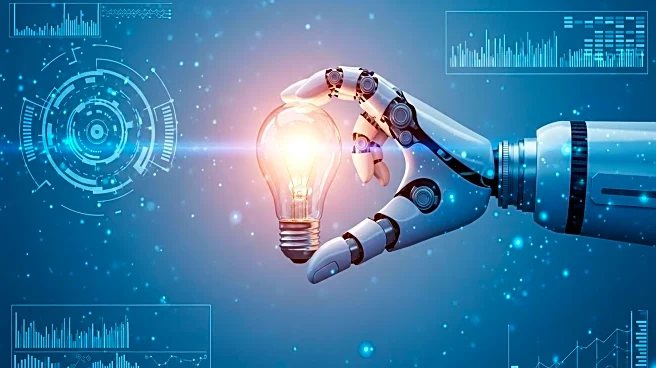What's Happening?
A Stanford study reveals the significant impact of AI on the job market, particularly affecting traditional tech roles like software developers. Sinead Bovell, founder of the tech education company WAYE, discusses misconceptions about AI's role in the workforce, noting that AI is now capable of handling creative and unpredictable tasks, not just routine ones. This development poses challenges for young people entering the job market, as AI can perform tasks typically assigned to junior hires. Bovell emphasizes the importance of skills such as judgment, communication, and adaptability in navigating a future with AI, suggesting that these skills are crucial for remaining competitive.
Why It's Important?
The study underscores the transformative effect of AI on employment, highlighting the need for workers to adapt to a rapidly changing job landscape. As AI continues to evolve, traditional roles may become obsolete, necessitating a shift in educational focus towards skills that AI cannot easily replicate. This has implications for workforce development, education policy, and economic planning, as industries must prepare for a future where AI plays a central role. The emphasis on adaptability and lifelong learning is crucial for individuals to remain relevant in the workforce, potentially leading to shifts in career paths and industry growth.
What's Next?
As AI technology advances, industries and educational institutions may need to reevaluate their approaches to workforce training and development. Companies might increasingly rely on AI for tasks previously performed by humans, prompting a reevaluation of hiring practices and job roles. Educational systems may need to incorporate AI-related skills into curricula to prepare students for future challenges. Policymakers could face pressure to address the economic and social impacts of AI-driven job displacement, potentially leading to new regulations or support programs for affected workers.









